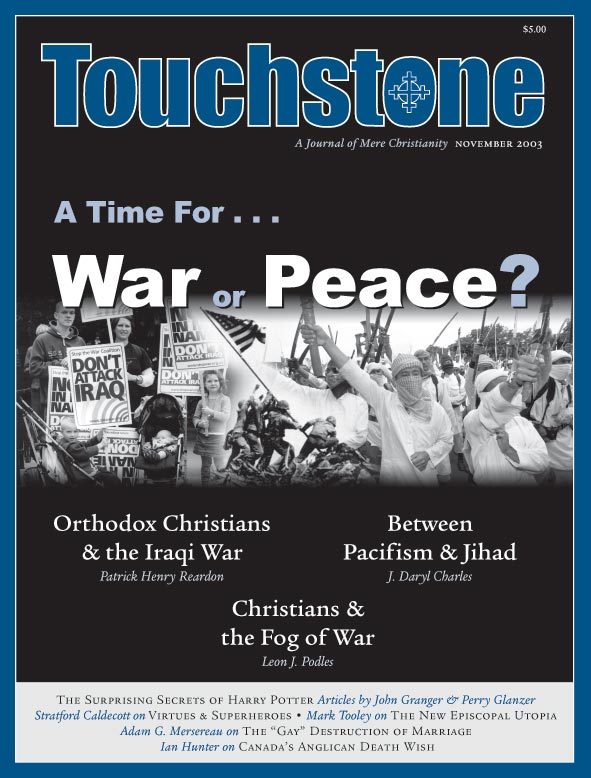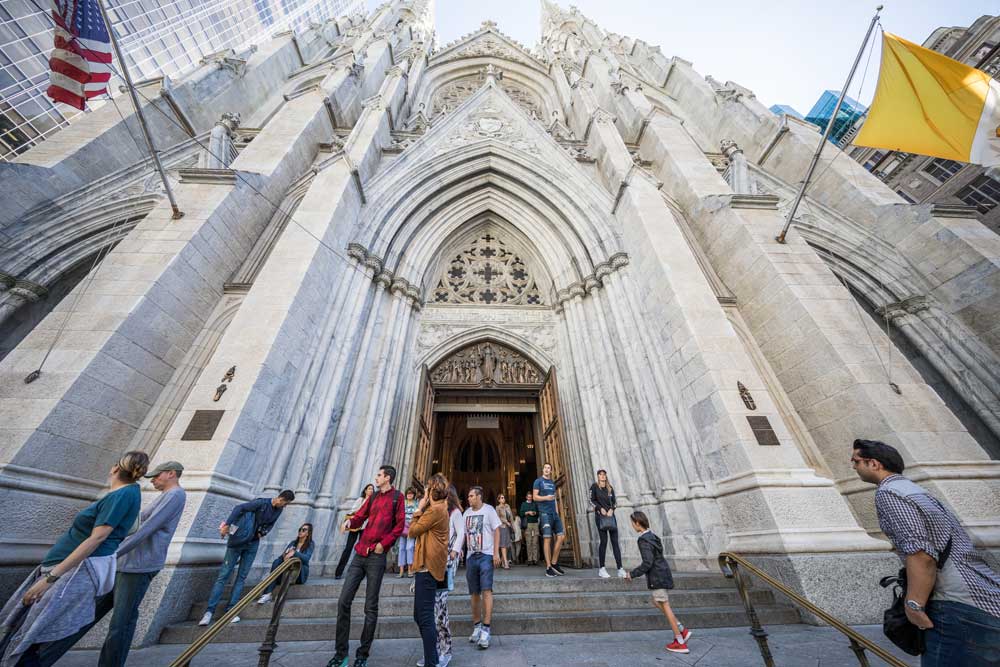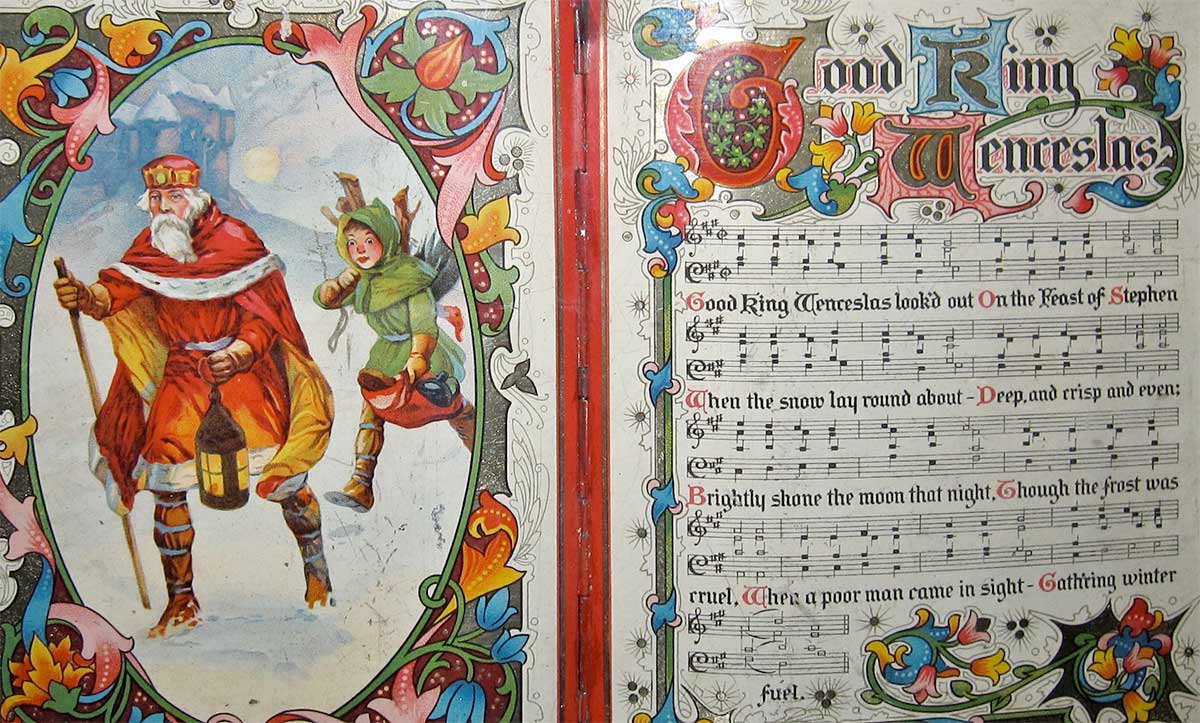Christians & the Fog of War
Every Christian who participates in war is bound by the laws of war, both the ius ad bellum, deciding whether it is just to go to war, and the jus in bello, deciding what conduct is allowed in war. Christians have developed guidelines that help them decide when they must go to war and how they must conduct themselves in war. Notice that I said must. A public authority has the duty to defend the people it protects from unjust aggression. This is a duty, not a privilege. The sword is not borne without reason.
There is little disagreement about how Christians must conduct themselves in war. Massive attacks on civilians are forbidden. Civilians must be protected as far as possible. The attacks on German cities in World War II were wrong, but the allies probably killed more French civilians than the Germans did when they attacked German military installations in France. These were necessary and lawful attacks, and yet the allies killed some of the very people they were trying to liberate. War is horrifying, even when it is just and conducted justly.
The quandary that Christians face today is to know when it is necessary and lawful to go war, and against whom. Wars are no longer matters of armies crossing borders. Wars are conducted using hijacked airliners, and car bombs at nightclubs and cafes, and anthrax sent by post. Our attackers wear no uniform; they seek to disguise their identities. We do not even know with certainty who they are in many cases.
Determining who is attacking us and locating them is therefore a matter of intelligence gathering and analysis. Intelligence is a treacherous field. Truth is the first casualty of war. As Churchill said, it is so precious it must be surrounded by an entourage of lies. Enemies try to deceive each other about their strategy, tactics, capabilities, and intent. Those who evaluate intelligence, whether in the 1930s or 2000s, are not infallible. They operate in the fog of war, of lies, and of double and triple agents, of misinformation and disinformation. Nor do they have decades to evaluate their material; they have months, weeks, days, hours, minutes. They will make mistakes, no matter how expert and intelligent and well-intentioned they are.
What, therefore, is an ordinary Christian to do? He does not have information that his government has, and even if he had it, how could he evaluate it? Does he have any choice but to believe what his government tells him?
In a democracy, Christians must form political opinions on moral matters and act on them. They can decide that their government is in error and that a given war is unjust, but they must provide reasons for doing so. The presumption is that a democratically elected government is well-intentioned; it may certainly make mistakes, but it is not a tyranny.
The proper criticism must be that the government has misunderstood the situation, not that it has no right to defend its citizens (the Vatican’s argument), or that it is a tool of the Jews or of oil interests (the European and Arab argument), or that the 9/11 attacks were carried out by the CIA to justify an American takeover of the world (as 30 percent of Germans believe).
In fact, such empty and irrational arguments merely confirm the American government and people in their belief in the justice of their cause. If a Christian believes that a government has misjudged a situation and should not go to war, he has the right and duty to voice his objections. Sometimes (as in the case of the Mexican War) the injustice of the war may be so obvious to a citizen that he refuses all cooperation with the government.
Perhaps the response of our government to attacks on its citizens is based on misunderstandings; in that case, a citizen must try to show the government how it has erred. But it is the government, not the private citizen, who has the duty to wage war to protect the people, and it is the responsible authorities in the government who must make judgments, often on inadequate, misleading, and distorted information.
Rather than attacking motives, Christians should supply facts and rational analysis, and above all, pray for government leaders to have an almost supernatural wisdom in dealing with the endless deceits of the enemy.
—Leon J. Podles, for the editors
Leon J. Podles holds a Ph.D. in English from the University of Virginia, has worked as a teacher and a federal investigator, and is president of the Crossland Foundation. He is the author of The Church Impotent (Spence), Sacrilege (Crossland Press), and Losing the Good Portion: Why Men Are Alienated from Christianity (St. Augustine Press). Dr. Podles and his wife have six children and live in Baltimore, Maryland. He is a senior editor of Touchstone.
subscription options
Order
Print/Online Subscription

Get six issues (one year) of Touchstone PLUS full online access including pdf downloads for only $39.95. That's only $3.34 per month!
Order
Online Only
Subscription

Get a one-year full-access subscription to the Touchstone online archives for only $19.95. That's only $1.66 per month!
bulk subscriptions
Order Touchstone subscriptions in bulk and save $10 per sub! Each subscription includes 6 issues of Touchstone plus full online access to touchstonemag.com—including archives, videos, and pdf downloads of recent issues for only $29.95 each! Great for churches or study groups.
Transactions will be processed on a secure server.
more from the online archives
calling all readers
Please Donate
"There are magazines worth reading but few worth saving . . . Touchstone is just such a magazine."
—Alice von Hildebrand
"Here we do not concede one square millimeter of territory to falsehood, folly, contemporary sentimentality, or fashion. We speak the truth, and let God be our judge. . . . Touchstone is the one committedly Christian conservative journal."
—Anthony Esolen, Touchstone senior editor










